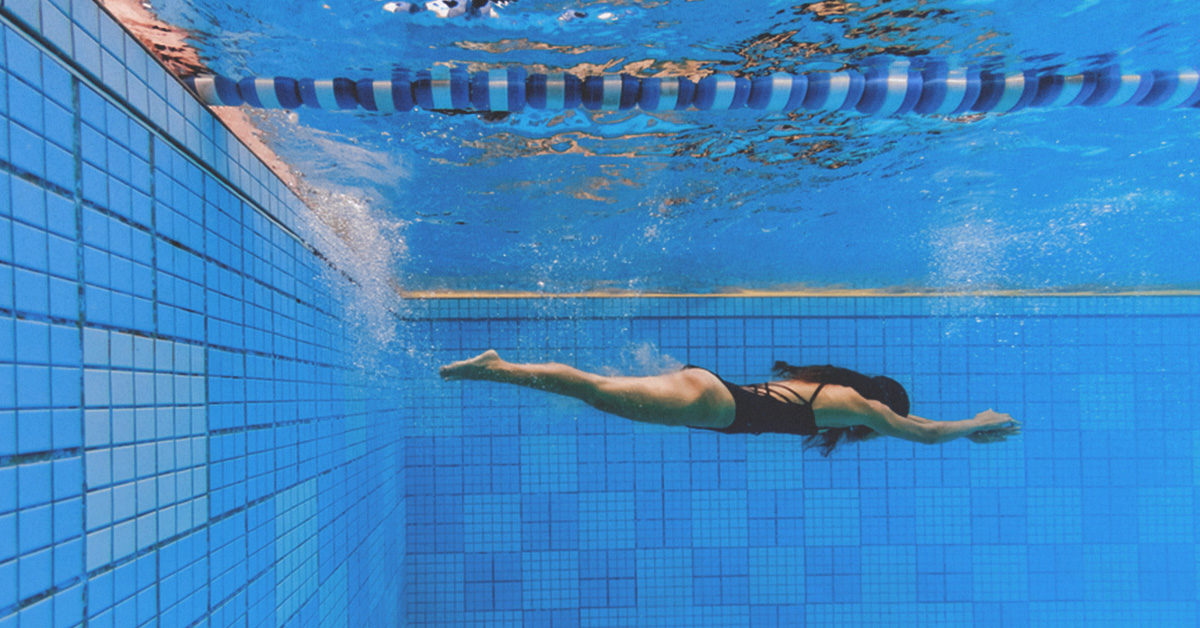
Different dangers of swimming in open water
Lovers swimming in open water are exposed to very different factors than a conventional pool with a lifeguard course. While swimming across a river or sea is an interesting challenge, precautions must be taken.
Before indulging in adventure, it is necessary to be attentive to all circumstances; good knowledge of the subject can prevent accidents or fatal health problems.
Climate changes, water temperature, and physical condition are vitally important since they can be the cause of a negative experience when they are not analyzed in advance.
Swimming in open water, main dangers
As we’ve already mentioned, swimming in open water is not the same as swimming in a controlled pool. These are some of the risks that must be prevented, before launching into open water:
Hyperthermia
Swimmers can experience an excessive rise in body temperature. In particular, this happens on days of the strong sun due to long exposure to it. Symptoms vary depending on the level of hyperthermia and the response of each organism. The most common, but requiring urgent medical intervention, are:
- Cramps
- Edema
- Heatstroke manifests itself with various conditions such as lack of coordination, seizures, severe headaches, dizziness, etc.
- Dehydration causes dizziness to the point of fainting.
- Fatigue, imbalance, and sweating.
- Hypothermia.
Swimming in open water
When swimming in open water, the water temperature can lower body heat below necessary levels. The symptoms worsen as the cold takes over the body. Swimmers begin to feel:
- Slowness in thinking and in the ability to speak.
- Stiffness in the body muscles.
- Hallucinations
- Decreased blood pressure.
- Heart difficulties.
- Coma.
- Adverse weather conditions
Strong winds produce waves and hamper the ability to swim in open water. The water exhibits sudden movements whose force can cause injuries. The risks of entering the water on a windy day are those derived from suffering blows or losing the strength to advance.
Gentle rains are generally good company for swimming enthusiasts. However, you have to be vigilant and leave on time when the torrent is greatest; in the same way, it is necessary to act in case of electrical storms.
Some unforeseen
Lack of planning and knowledge of your chosen swimming area can be dangerous. The presence of unexpected grass or stones is surprising and causes a risk of injury to swimmers.
Likewise, in the same way, that the place of entry is chosen, the exit area must be displayed. Swimming in open water aimlessly is a hazard that could end in fatality.
The fact of spending hours exercising without finding land causes exhaustion; the body begins to suffer the consequences and the forces run out.
Different diseases
Contaminated water is a contagion factor for bacterial or parasitic diseases of varying severity. It is essential to take preventive measures and make sure you swim in open waters enabled.
Likewise, the hygiene rules for a swimmer must be met with the highest possible exigency with a lifeguard course. It is a way of eliminating a large number of risks caused by pollutants on beaches or other types of spaces.
Tips for swimming in open water
These simple tips will help the bather to enjoy their open water experience:
- It is important to have a route plan that has the estimated times for each section of the race that is undertaken.
- You should not swim in open water without the company or supervision of third parties who can come to the rescue in the face of any risk or need.
- A gradual entry into the water should be made in order to acclimatize and avoid imbalances in body temperature. This also favors the normalization of blood flow.
- Use the appropriate equipment to face changes in temperature or possible adversities.
- Maintain concentration, watch your breath and use the best technique to avoid immediate exhaustion.
It is very positive to control anxiety in situations of cramps, traffic jams, or other inconveniences until you receive the necessary help.
An activity that relieves tensions
For many amateurs and professionals, the habit of swimming in open water releases stress with a lifeguard course. The mere fact of coming into contact with the sea or the river allows them to forget about problems and relax the mind, in addition to the physical benefits.
Swimming is always a highly recommended exercise because it activates areas of the brain that fight stress and nerves. So that this routine can be part of our lives without risk, it is important that the advice we have seen is followed.
Must Read: Everything you should keep in mind before swimming





